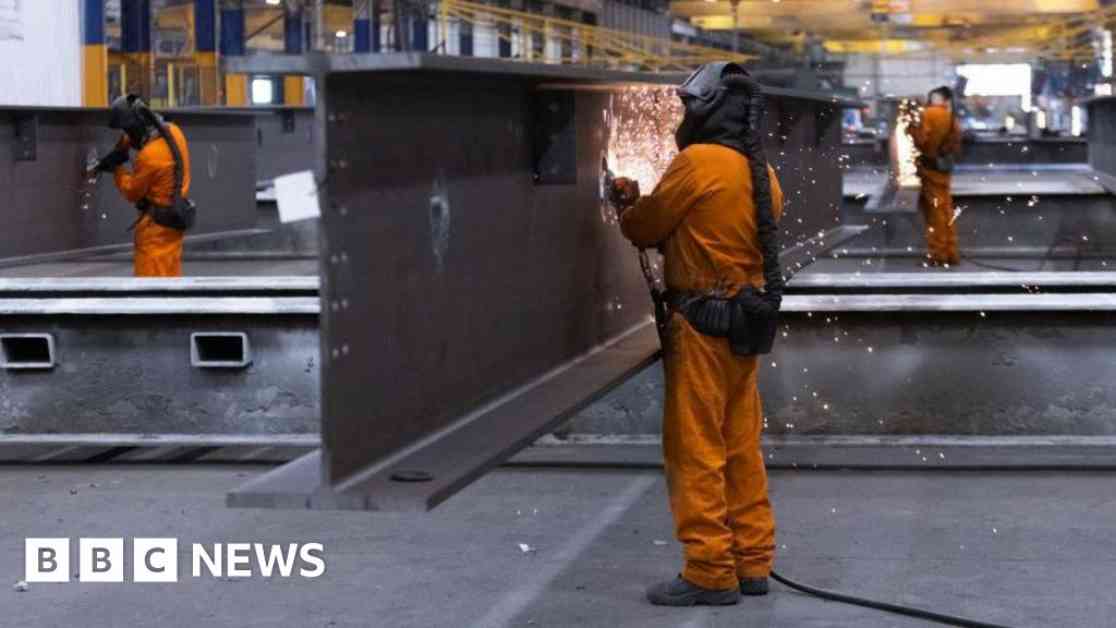The UK steel industry is facing a looming threat of tariffs, potentially costing millions in trade and putting jobs at risk. In response, the government has unveiled a Plan for Steel to safeguard the industry’s future. Business Secretary Jonathan Reynolds is leading the charge with a consultation aimed at addressing long-term challenges and providing up to £2.5bn in support.
Challenges and Solutions
One of the key concerns is the impact of US President Donald Trump’s proposed 25% tariff on steel imports, set to take effect on 12th March. This move could have significant consequences for the UK sector, prompting fears of undercutting by cheaper suppliers. In the face of this uncertainty, the Plan for Steel seeks to reduce production costs, promote the use of domestic steel in infrastructure projects, and shield the industry from unfair trading practices abroad.
While the consultation does not directly tackle the tariff threat, Reynolds emphasizes that the financial support is essential to safeguard jobs, drive growth, and protect the UK’s industrial heartlands. Shadow business secretary Andrew Griffith stresses the need for proactive dialogue with the US to address the challenges posed by tariffs and ensure a sustainable future for the steel industry.
Strategic Initiatives and Industry Impact
The Plan for Steel aims to tackle longstanding issues hindering the industry’s growth, such as expanding steel production, enhancing scrap processing facilities, and investing in energy-efficient electric arc furnaces. These measures are designed to boost competitiveness, increase the utilization of UK-made steel in public projects, and mitigate the threat of cheap imports flooding the market.
UK Steel, representing the industry, warns that the tariffs could deal a devastating blow to the sector’s vital role in UK-US trade. Although the UK accounts for a modest share of American steel exports, concerns linger about potential repercussions, including surplus steel being diverted to the UK. This scenario could lead to increased competition, price pressures, and job losses within the domestic steelmaking sector.
The government’s strategy aligns with the National Wealth Fund’s efforts to drive infrastructure investments and support steel production hubs in regions like Scotland, Scunthorpe, Rotherham, and Redcar. By partnering with private stakeholders and local authorities, the government aims to bolster the steel industry’s resilience and create new opportunities for growth and innovation.
Critical Industry Response and Future Outlook
The UK steel industry has weathered significant challenges in recent years, with major job losses and restructuring initiatives underway. Companies like Tata Steel and British Steel are transitioning from traditional blast furnaces to modern electric arc furnaces, signaling a shift towards more efficient and sustainable production methods. However, these transformations come with workforce reductions, underscoring the need for government support and strategic planning to mitigate the social and economic impact.
GMB union and UK Steel officials have welcomed the government’s commitment to the industry, emphasizing the importance of preserving domestic steelmaking capacity for economic stability and national security. As the consultation process unfolds and a comprehensive steel strategy takes shape, stakeholders are hopeful that a collaborative approach will pave the way for a resilient and competitive steel industry in the UK.
While challenges lie ahead, the government’s proactive stance and investment in the sector offer a glimmer of hope for steelworkers and communities reliant on this vital industry. As the steel strategy takes form and energy cost reduction measures are explored, the path to a sustainable future for UK steel grows clearer, promising a brighter outlook for an industry that remains a cornerstone of the nation’s industrial heritage.













